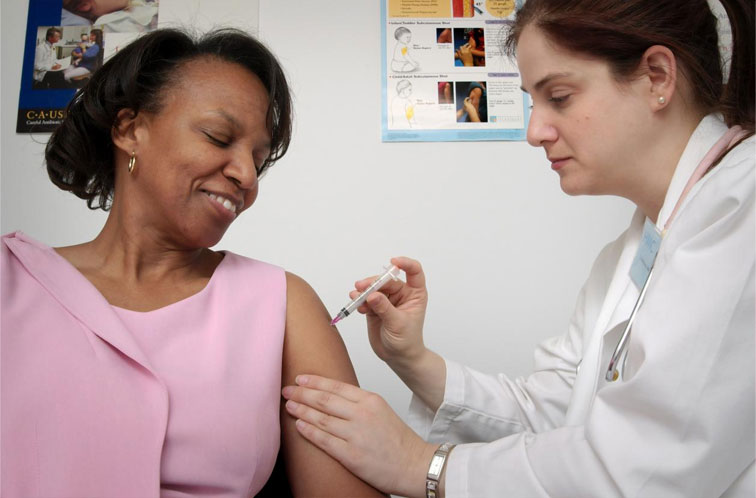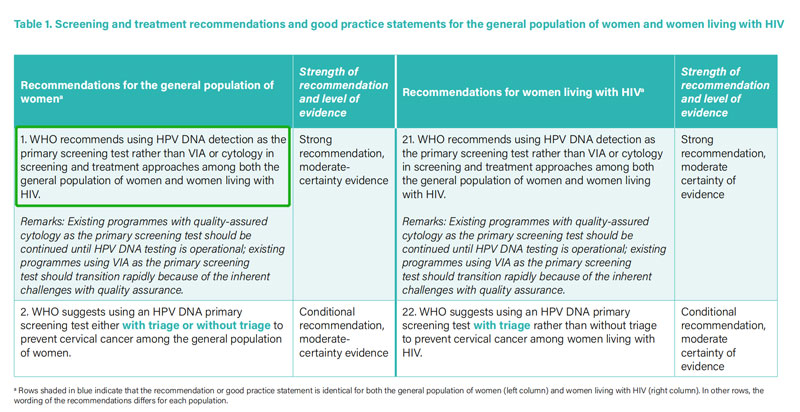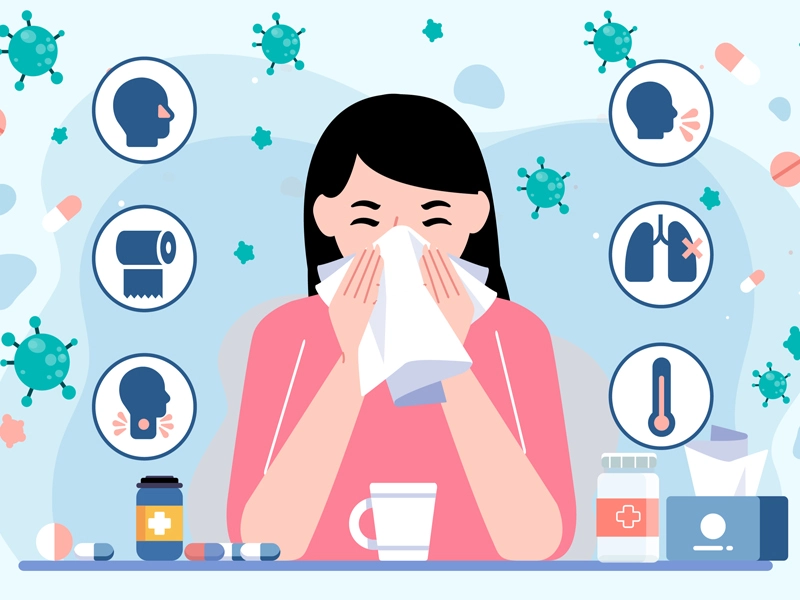Cancer is the number one killer that threatens human life and health. According to data from the World Health Organization (WHO), globally there were more than 19 million new cancer cases and almost 10 million cancer-related deaths in 2020.
World Cancer Day was established in 2000 and is scheduled for February 4 each year, and various organizations around the world have made campaigns and initiatives for this day. The theme for the years 2022-2024 is 'Close the care gap' which focuses on eliminating the difference in access to cancer care services faced by populations of various groups of country income, age, gender, ethnicity, etc.
According to the WHO article on cancer control, 30-50% of all cancer cases are preventable. Cancer control can benefit from ensuring that people have the information and support they need to adopt a healthy lifestyle, which includes raising awareness about cancer prevention and exposing people to fewer cancer risk factors. Prevention is the most effective strategy for cancer control, and it is also a long-term strategy.
Cancer is not far away from us. We are living in an environment that is exposed to many invisible infectious diseases that ultimately, somehow, lead us to generate tumors or cancer.

For instance, both hepatitis B and hepatitis C can lead to lifelong infections. WHO estimates that 1.1 million people died in 2019 from these infections and their effects, including liver cancer, cirrhosis and other diseases caused by chronic viral hepatitis. Although people can prevent the hepatitis virus with safe and effective vaccines, there are still many countries that are severely affected by hepatitis B and hepatitis C. Both hepatitis viruses still have a certain rate of transmission. The CDC recommends that all adults 18 years of age or older be tested for hepatitis C at least once and that all pregnant women be tested for hepatitis B and C during pregnancy. Getting the screening tests recommended by the CDC can help prevent colorectal and cervical cancers.
Screening adults at normal risk can also find breast, cervical, and colon cancers early when treatment is most effective, and we can also reduce the burden of cancer through the provision of quality treatment and care for those who have cancer. Many cancers have a high chance of being cured if diagnosed early and treated appropriately. As WHO has long advocated, early cancer diagnosis resonantly saves lives and reduces treatment costs.

There are many methods of cancer detection, like previously mentioned HBV and HCV are screened by highly sensitive PCR technology. Particularly, the new guidelines provided by WHO recommend HPV DNA-based testing as the preferred method over the visual inspection with acetic acid (VIA) or cytology because HPV-DNA testing can detect almost all high-risk HPV strains that cause cervical cancer. HPV-DNA testing is an objective diagnostic method and it is considered more cost-effective. It's also simpler than VIA or cytology, earlier preventing more precancerous lesions and saving more lives.

Except the HPV,PCR also have been used for detecting Epstein-Barr Virus (EBV),EBV is a ubiquitous virus that infects humans worldwide and can cause infectious mononucleosis, also called mono, and other illnesses. PCR technology is considered a valuable tool to monitor patients and is more sensitive than standard antibody testing for Epstein-Barr Virus. In cases when antibody tests for EBV fail to produce definitive results, a PCR test may be more useful.
The PCR diagnostic kit for Fusion Gene BCR-ABL can also be used to detect mRNA expression of the fusion gene BCR-ABL major and minor types in chronic granulocytic leukemia (CML), acute lymphoblastic leukemia (ALL) and other hematological tumors. It helps evaluate the effect of chemotherapy, prognosis and monitor the minimal residual disease (MRD) relapse in patients.
Molecular genetic diagnosis is the application of molecular biology to detect the structures or expression level changes of genetic materials, aiming to determine the susceptibility of individuals to certain diseases and existing diseases. Clinical widely used technologies consist of PCR amplification, DNA hybridization, and gene sequencing.

PCR technology nowadays plays an increasingly important role in clinical testing because it inspects gene amplification or loss, gene expression, and gene mutations, targeting the pathogen genetic material like DNA or RNA instead of the viral capsid or bacterial LPS (Lipopolysaccharide) protein help to avoid cross-reaction which results in misdiagnose. With better specificity, sensitivity, and detection speed, PCR technology is being increasingly used and has replaced numerous traditional tests in many areas of laboratory medicine, including infectious diseases, oncology, prenatal screening, and clinical genetics. The use of real-time PCR for molecular diagnosis is attractive because it is objective, rapid, versatile, cost-effective, and performed on small tissue samples.
The WHO Guidelines on hepatitis B and C testing made a strong recommendation for the use of a nucleic acid testing assay (e.g. PCR) as the preferred strategy for diagnosis of viraemic infection.
Daan Gene's nucleic acid testing kits - Hepatitis B test kit (PCR-fluorescent probe method) and Hepatitis C test kit (PCR-fluorescent probe method) obtained CE List A product certification, becoming China's first manufacturer to obtain the highest level of NAAT kit certification in the European Union.
EBV infection will cause nasopharyngeal cancer and Burkitt lymphoma. It may also be linked to Hodgkin lymphoma and some cases of stomach cancer. There are several diagnoses of Nasopharyngeal Cancer such as Imaging diagnosis, Pathological diagnosis as well as Molecular diagnosis. Detection Kit for Epstein-Barr Virus Nucleic Acid (PCR-Fluorescence Probing) developed by Daan Gene is used for the quantitative detection of EBV DNA in human serum, plasma, and whole blood specimens. The test method is based on the fluorescent PCR technique, which can realize the supplementary diagnosis of EBV infection.
More than 95% of cervical cancer is due to the human papillomavirus (HPV). HPV may persistently infect people and gradually become chronic and pre-cancerous lesions.
Daan Gene's STI testing kits for detecting the DNA of target pathogens like the HPV DNA PCR test kit can help clinicians make the differential diagnosis of patients.
Fusion Gene BCR-ABL Kit
In addition, we also provide Quantative Fusion Gene BCR-ABL Fluorescent Polymerase Chain Reaction Diagnostic Kit to guide doctors in monitoring the treatment.
Reference:
2.https://www.who.int/activities/preventing-cancer
3.https://www.cdc.gov/chronicdisease/resources/publications/factsheets/cancer.htm
4.https://www.who.int/activities/preventing-cancer




